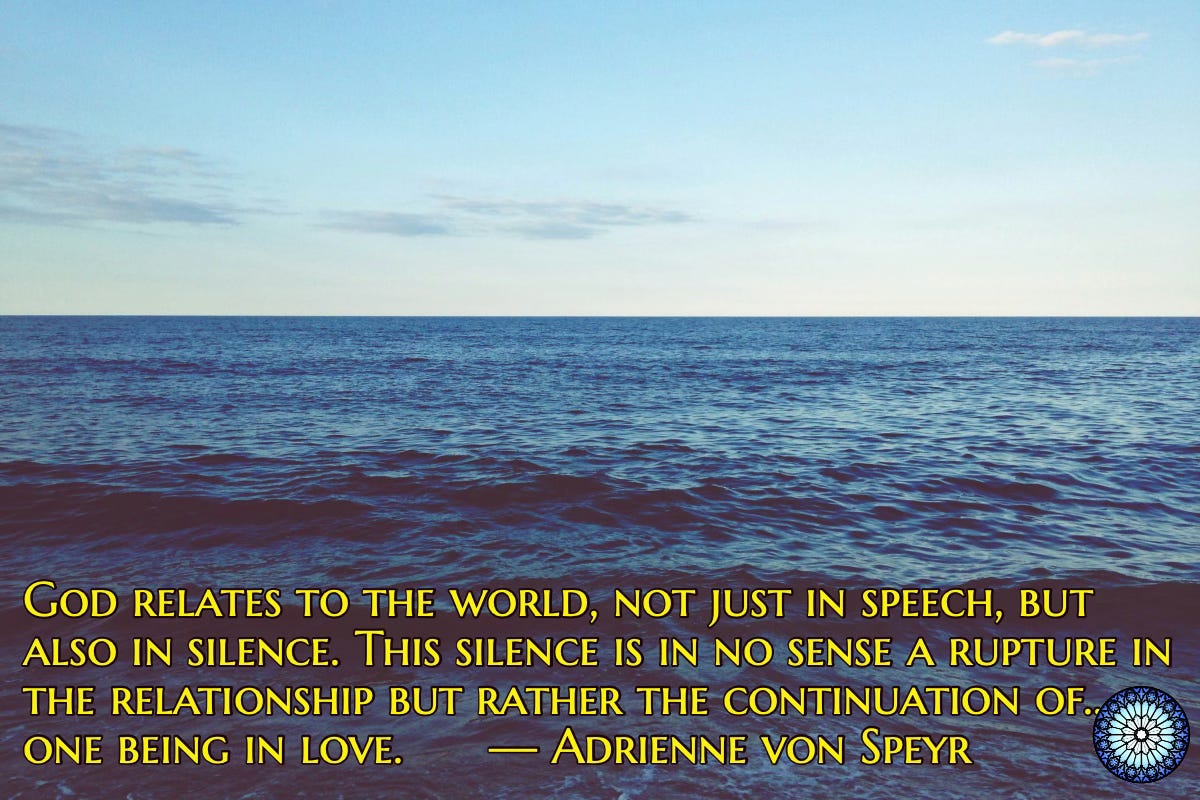The Continuing Silence
Speech and Silence are One in Love.
God relates to the world, not just in speech, but also in silence. This silence is in no sense a rupture in the relationship but rather the continuation of that which was the Father’s togetherness with the Son in the Holy Spirit in eternity before the creation: one being in love. — Adrienne von Speyr
What is the relationship between silence and speech? I…




